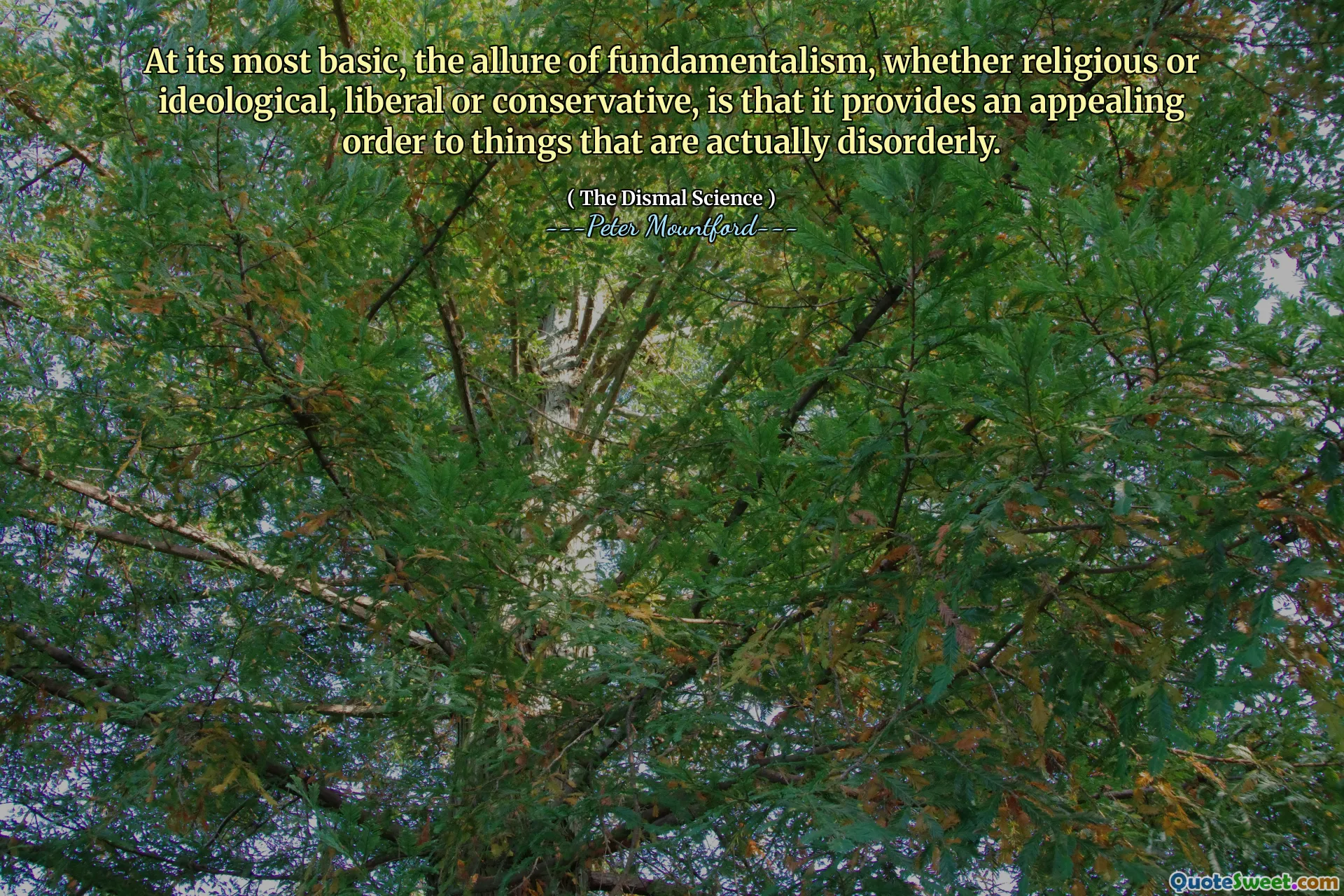
At its most basic, the allure of fundamentalism, whether religious or ideological, liberal or conservative, is that it provides an appealing order to things that are actually disorderly.
This quote highlights the paradoxical nature of fundamentalism across various domains—be it religious, ideological, liberal, or conservative. It suggests that at the core, fundamentalism offers a sense of structure and certainty in a world that is inherently chaotic and unpredictable. Human beings have an innate desire for stability and clarity, especially when faced with complex social, political, or personal realities. Fundamentalist beliefs serve as a framework that simplifies these complexities, creating an illusion of control and predictability. However, this desire for order often comes at the expense of nuance, flexibility, and understanding. The rigid adherence to certain doctrines or principles can barricade critical thinking and dialogue, leading to polarization and conflict. It's fascinating to consider how this appeal to order might be rooted in fear—fear of the unknown, fear of change, or fear of losing one's identity. Conversely, it raises questions about whether true understanding is possible without embracing some degree of disorder or ambiguity. By providing a clear-cut narrative or structure, fundamentalism becomes a comforting refuge, even if it ultimately restricts growth and adaptation. Recognizing this dynamic allows us to appreciate the importance of balancing structure with openness—embracing disorder as a necessary part of progress and human complexity. Ultimately, this quote invites reflection on how our search for order shapes our beliefs, behaviors, and societies in profound ways, often masking discomfort with chaos below the surface.






